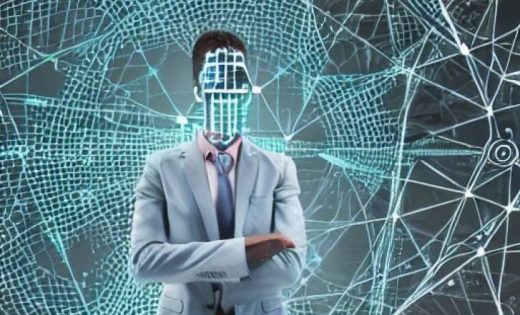AI Machines: The Role of Humans In Data Analytics
AI Machines: The Role of Humans In Data Analytics

The internet lit up the day ChatGPT was launched. Almost everyone across every social media platform plugged in to assess just how intelligent it was. Undoubtedly, it beat the people’s imagination and had their mouths agape with ghostly stupefaction.
Like jeez, it did not only write computer programs, poems, essays, and everything in between and extended; it also wrote them with such finesse, clarity, and relativity that can be credited to a brilliantly intelligent human. It even got 1020 on the SAT. How incredible!
I remember my friend, a physicist, returned from his office and would not stop screaming in awe at what people were doing with ChatGPT on Twitter. Next, he started speculating what such a show of intelligence by AI means for human employment henceforth. “You don’t understand; this thing can do everything, boy!” He whaled, “Many people will lose their jobs!” He was sure that humans would lose some of the jobs they did. However, I expected him to tell me what type of jobs would be lost to AI in general.
Will AI displace data analysts?
I did not care a fig until he told me he had read somewhere that AI would displace data analysts. Immediately, I was invested in ascertaining how. So, I engaged ChatGPT to know what qualities of human intelligence it can demonstrate now and, quite possibly, in the future.
First, I started with domain-specific questions, which the application did credibly — very well. Then I moved on to coding assignments, and ChatGPT did fantastically well within the specificity of the assignments.
Finally, I moved on to a more data-centric assignment, and guess what? I was not bowled over as my friend had painted that I would.
What is the current role of humans in data analytics?
Perhaps I expected too much. When I described what I wanted to do algorithmically, the application offered solutions in a way that made me productive, especially in discovering methods that expedited data wrangling.
However, it could not on its own execute all the data analytics processes, which according to Google Analytics, are Ask, Prepare, Process, Analyze, Share, and Act.
Despite technological advances and the availability of tools and systems that can perform some of the data analytics tasks, humans play a crucial role in data analytics.
For example, while machines and algorithms can process and analyze large amounts of data quickly and accurately, they are not able to fully replace the ability of human beings to understand and interpret the results of data analysis.
Humans ask the correct questions
The part humans play in data analytics is crucial at this time because humans bring a level of context, insight, and judgment to data analysis that is essential for making informed decisions based on data.
First, humans can ask the right questions, identify patterns and trends, and draw meaningful conclusions from data. They also can communicate the analysis results in a way that is understandable and actionable for decision-makers.
Furthermore, humans are responsible for defining the goals and objectives of analysis, selecting and preparing data for analysis, and in addition — designing and implementing the analysis plan.
The human touch is also responsible for ensuring that the data is collected and managed ethically and responsibly — and for considering the potential biases and limitations of the data.
Overall, the role of humans in data analytics is to use their analytical skills, critical thinking, and creativity to extract value and insights from data and to use those insights to inform and improve decision-making.
Why AI machines cannot displace humans in data analytics
While the question is whether AI machines, like ChatGPT, have replaced humans in critical fields like data analytics, it has been shown that they cannot perform tasks such as formulating research questions, sourcing data, or conducting analysis altogether.
Although they can provide information and guidance on these topics, the actual execution of these tasks requires the involvement of human beings with the necessary skills and resources.
Formulating research questions and designing an analysis plan
For example, formulating research questions and designing an analysis plan requires a deep understanding of the domain and the specific problem or question being addressed. It also requires critical thinking and creativity to identify the appropriate data sources and the most appropriate analytical approaches to use.
Moreover, sourcing data and preparing it for analysis can be complex and time-consuming. Therefore, it requires a variety of skills and tools to access, clean, and transform data as needed.
More so, conducting data analysis and interpreting the results also requires a combination of technical skills and domain knowledge. It involves applying statistical and computational techniques to the data and using critical thinking and judgment to draw meaningful conclusions from the results.
What can AI machines help humans accomplish in data analytics?
Efficiency is required of a data analyst. Therefore, any skill or the combination thereof that will ensure that is certainly desirable. While AI machines cannot apply the concepts of data analytics to a specific problem—as that requires a deeper understanding of and expertise in the domain in which the analysis is done—they can ensure that data analysts are effective.
They may lack the skills and resources to access and work with the relevant data. Still, they can provide information and guidance on statistical techniques, data visualization, and machine learning algorithms.
AI will make your programming and data analytics easier and more complete
AI machines can make programming that is required in data analytics easier, thereby allowing humans to concentrate their strength on interpreting and communicating the results of an analysis. These alone require both critical and analytical thinking skills, in addition to domain expertise.
Programming involves using a specific set of instructions and syntax to tell a computer or other machine how to perform a task. It requires a deep understanding of the problem being solved and the appropriate algorithms and approaches to use. It also treasures the ability to write and debug code.
As long as humans understand the task to be done, AI machines can provide information and guidance on programming concepts and languages, execute code completion, and check for errors in codes.
How long will humans be able to perform data analytics until AI machines take over?
While machines, like ChatGPT, and algorithms can assist with certain aspects of data analytics tasks, the full process of formulating research questions, sourcing data, conducting analysis, and interpreting results typically requires the active participation and expertise of human beings.
Meanwhile, it is difficult to predict the future development of technology and the extent to which machines and algorithms may be able to assist with or automate certain aspects of data analytics tasks.
However, humans will continue to play a significant role in the field of data analytics for the foreseeable future, as they bring a level of context, insight, and judgment to analysis that is essential for making informed decisions based on the data.
Going forward
It looks like humans in the future will use more automated tools and systems to perform certain tasks, such as data cleaning and preparation. They will use pre-built machine learning models for predictive modeling. Does that then mean they will have a more limited role in data analytics?
One thing is for sure: Data is growing in zillions, and to uncover the insights in them, AI tools are golden. They will enable humans to concentrate their brain power on interpreting and conveying these insights—giving them meaning and ensuring that they are specifically actionable.
Featured Image Credit: Provided by the Author; Thank you!
The post AI Machines: The Role of Humans In Data Analytics appeared first on ReadWrite.
(12)


